Alecnib 150 Mg (Alectinib): Non Small Cell Lung Cancer Treatment
Alecnib 150 Mg contains Alectinib, a highly effective oral medication designed to treat ALK-positive Non Small Cell Lung Cancer Treatment (NSCLC). Alectinib is a next-generation tyrosine kinase inhibitor (TKI) specifically engineered to block the action of anaplastic lymphoma kinase (ALK), a protein responsible for cancer cell growth in certain lung cancers. Alecnib has proven to be a breakthrough treatment for advanced or metastatic stages of NSCLC.
Description
Alecnib 150 Mg (Alectinib): Non Small Cell Lung Cancer Treatment Look no further than Alectinib 150mg (Alecnib)—a targeted therapy designed specifically for ALK-positive NSCLC patients. This revolutionary treatment is paving the way for a more effective and personalized approach to lung cancer, offering patients a higher quality of life and extended survival.
Learn how Alectinib can be a game-changer in cancer treatment, providing a new ray of hope for those diagnosed with this challenging condition.
What is Alectinib 150mg?
Alectinib (marketed under the brand name Alecensa) is a targeted cancer therapy used to treatAlecnib 150 Mg (Alectinib): Non Small Cell Lung Cancer Treatment in patients whose tumors are ALK-positive. This means that the cancer cells are driven by an abnormal gene called anaplastic lymphoma kinase (ALK). By blocking the action of the ALK protein, Alectinib helps to stop the growth and spread of cancer cells, providing significant benefits in the management of NSCLC.
Alecnib 150 Mg (Alectinib): Non Small Cell Lung Cancer Treatment, which is responsible for promoting the growth and spread of cancer cells. It is a second-generation ALK inhibitor, meaning it’s designed to work even when other ALK inhibitors like Crizotinib might not be effective, particularly when resistance has developed.
Features and Benefits of Alectinib 150mg
Alectinib offers a range of features and benefits that make it a preferred choice in the treatment of ALK-positive NSCLC:
- Effective Against Resistant Mutations: One of the biggest advantages of Alectinib is its ability to overcome resistance to earlier treatments like Crizotinib. Studies have shown that Alectinib is effective in patients who have developed resistance mutations, offering them a second chance at controlling the disease.
- Extended Progression-Free Survival: Clinical trials have demonstrated that Alectinib significantly improves progression-free survival (PFS) in patients with ALK-positive NSCLC. This means that patients can live longer without their cancer worsening, giving them more time with loved ones and improving their quality of life.
- Fewer Side Effects: Alectinib generally has a better side effect profile compared to older ALK inhibitors, making it a more manageable option for long-term cancer therapy. Common side effects such as fatigue, diarrhea, and muscle pain are typically mild and manageable.
- Oral Administration: Alectinib is taken as an oral pill, making it convenient for patients to manage at home without the need for intravenous (IV) administration. This offers more flexibility and comfort in the daily routine.
- Well-Tolerated by Most Patients: Most patients tolerate Alectinib well, with fewer reports of severe adverse effects compared to other treatments. However, regular monitoring by a healthcare provider is essential to ensure its effectiveness and manage any potential side effects.
How Does Alectinib Work in Treating ALK-Positive NSCLC?
Non-small cell lung cancer is the most common type of lung cancer, and a significant percentage of these cases are driven by ALK mutations.
These mutations lead to the production of abnormal ALK proteins, which drive the uncontrolled growth of cancer cells. Alectinib, as an ALK inhibitor, targets these abnormal proteins, preventing them from promoting tumor growth.
By blocking the ALK protein’s action, Alectinib can slow or stop the progression of cancer. This targeted approach is far more specific than traditional chemotherapy, which can also damage healthy cells.
Because Alectinib specifically targets cancerous cells with ALK mutations, it is able to significantly reduce cancer spread while minimizing damage to normal, healthy cells.
Who Should Consider Alectinib 150mg?
Alectinib is prescribed to patients with advanced, ALK-positive non-small cell lung cancer (NSCLC). It is typically considered for individuals who:
- Have been diagnosed with metastatic ALK-positive NSCLC.
- Have experienced disease progression on or after Crizotinib or another first-generation ALK inhibitor.
- Are newly diagnosed with ALK-positive metastatic NSCLC and have not yet received any prior treatment.
If you or someone you know has been diagnosed with ALK-positive lung cancer, Alectinib could be a crucial part of the treatment plan, offering a more tailored and effective solution compared to traditional chemotherapy.
How is Alectinib Administered?
Alectinib 150mg is typically taken as a tablet, twice a day with food. The standard dosage is 150 mg in the morning and evening, but your healthcare provider may adjust this based on your specific condition and how well you tolerate the treatment.
- Administration: Take each tablet with a full glass of water.
- Consistency: It’s important to take Alectinib consistently at the same times each day to maintain steady levels of the medication in your bloodstream.
- Dosage Adjustments: Your doctor may adjust the dosage if you experience side effects, or if your liver enzymes are affected, so regular monitoring is essential during the course of treatment.
Potential Side Effects of Alectinib 150mg
While Alectinib has proven to be highly effective for many patients, like all medications, it comes with potential side effects. Most of these side effects are mild to moderate and can be managed with the help of a healthcare provider. Common side effects include:
- Fatigue or tiredness.
- Muscle pain or weakness.
- Liver enzyme elevations (which are typically monitored through blood tests).
- Diarrhea, nausea, or vomiting.
- Swelling in the legs or ankles.
- Coughing, shortness of breath, or mild respiratory symptoms.
More serious side effects can occur, but they are rare. These may include liver damage, lung toxicity, or severe allergic reactions. Regular blood tests and close monitoring by your healthcare team can help manage and mitigate these risks.
Why Choose Alectinib for ALK-Positive NSCLC?
Alectinib stands out as a key treatment option for patients diagnosed with ALK-positive NSCLC for several reasons:
- Superior Efficacy: Compared to other ALK inhibitors like Crizotinib, Alectinib has shown superior progression-free survival (PFS) in clinical trials, which means it is more effective in controlling the disease.
- Better Tolerability: With fewer and less severe side effects, Alectinib is often preferred for long-term use, allowing patients to continue their daily lives with fewer disruptions.
- Targeted Treatment: Unlike traditional chemotherapy, which affects both healthy and cancerous cells, Alectinib specifically targets the ALK mutation in cancer cells, leading to fewer side effects and more effective results.
Use Cases for Alectinib
Whether you’re newly diagnosed with ALK-positive NSCLC or have previously received ALK inhibitors, Alectinib 150mg offers a tailored treatment approach that can address both primary and resistant mutations. Some common scenarios where Alectinib is used include:
- First-Line Treatment: For patients with ALK-positive, advanced NSCLC who have not received prior ALK inhibitor treatment.
- Second-Line Treatment: For patients who have developed resistance to first-generation ALK inhibitors like Crizotinib.
- Maintenance Therapy: Alectinib can also be used as a maintenance therapy to prolong progression-free survival after initial treatment success.
Call to Action
Don’t wait—take control of your lung cancer treatment today with Alectinib 150mg (Alecnib). Whether you’re starting treatment or seeking a more effective alternative, Alectinib offers hope for those with ALK-positive non-small cell lung cancer. Order now and experience a new level of care, with better outcomes and fewer side effects. Speak to your oncologist to find out if Alectinib is the right choice for you!

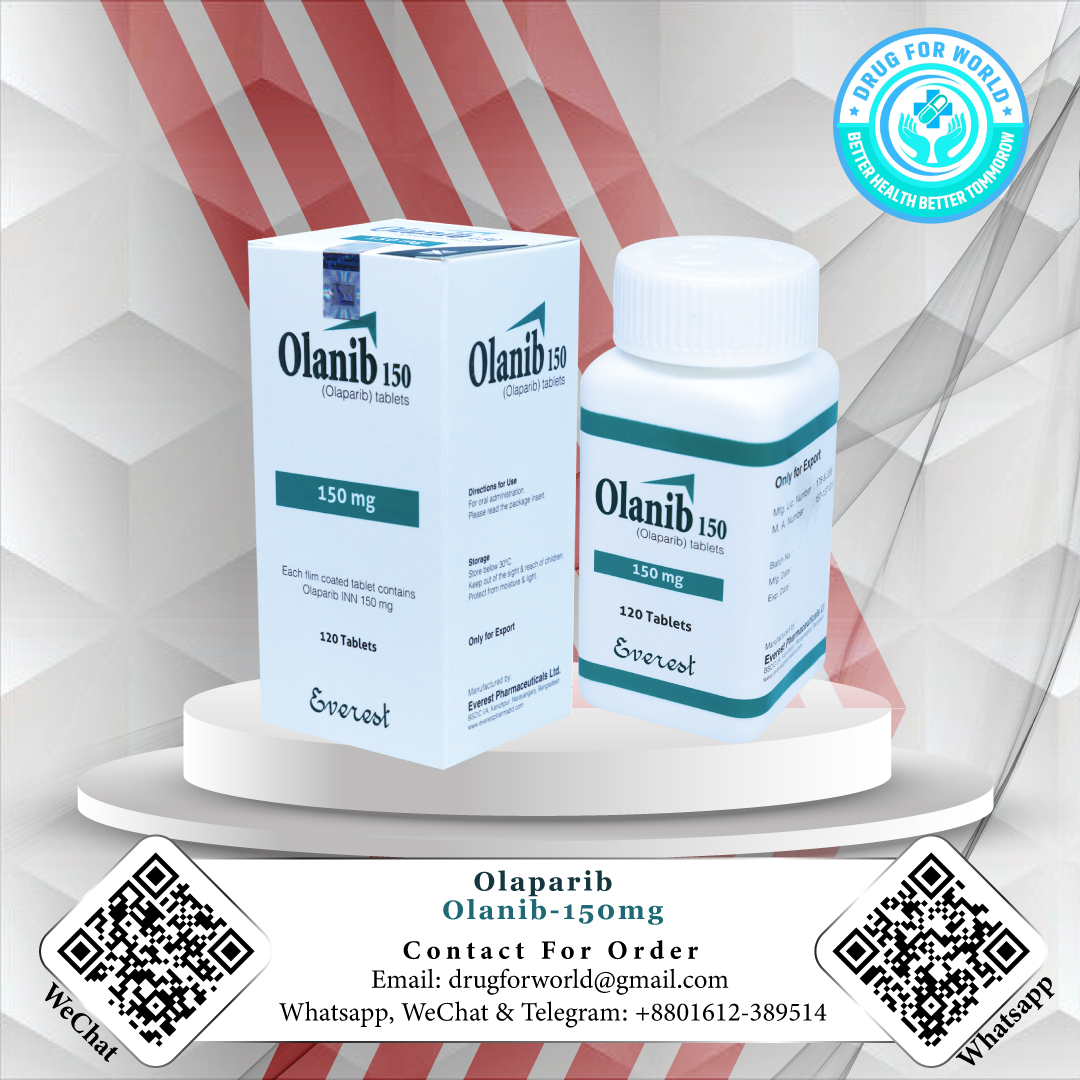
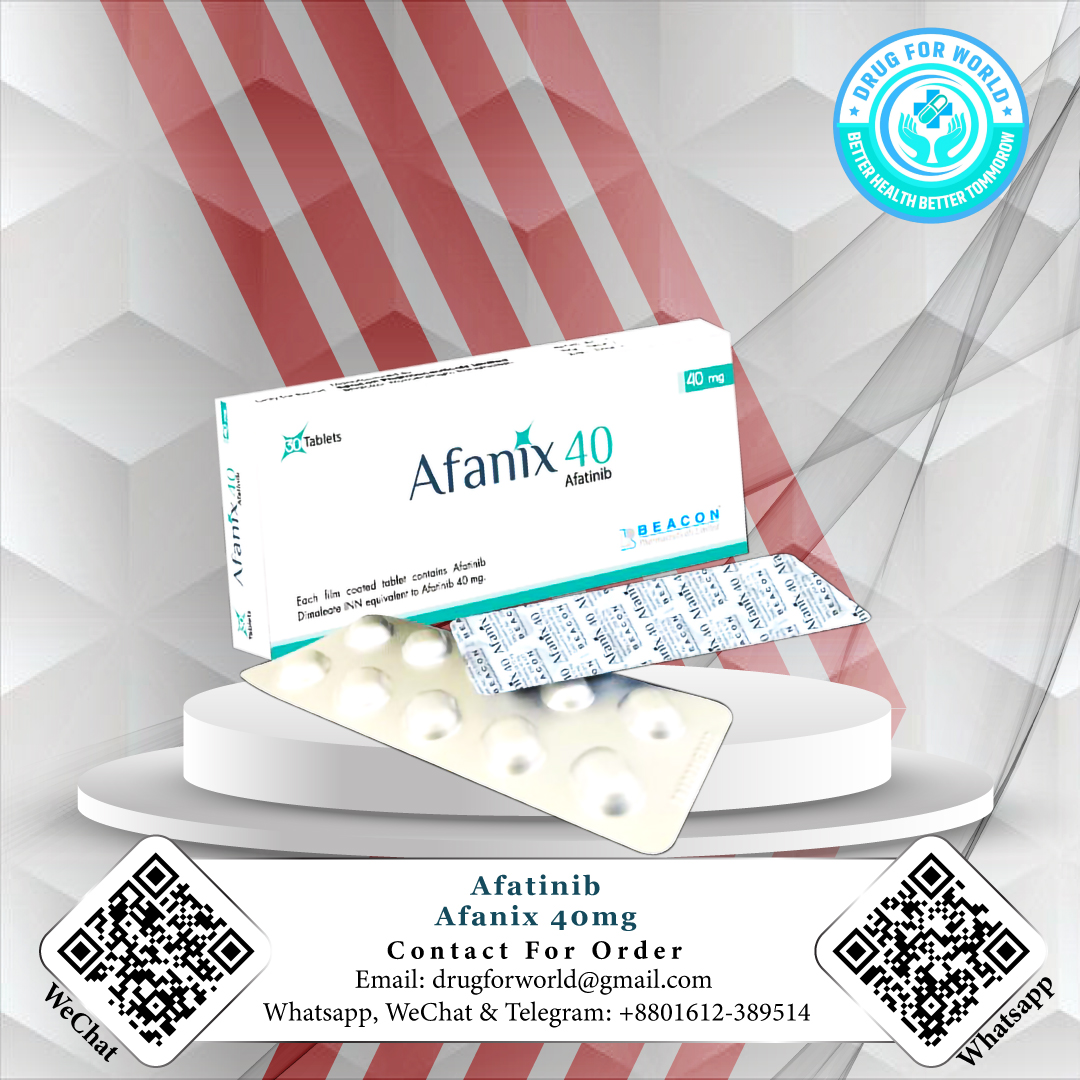
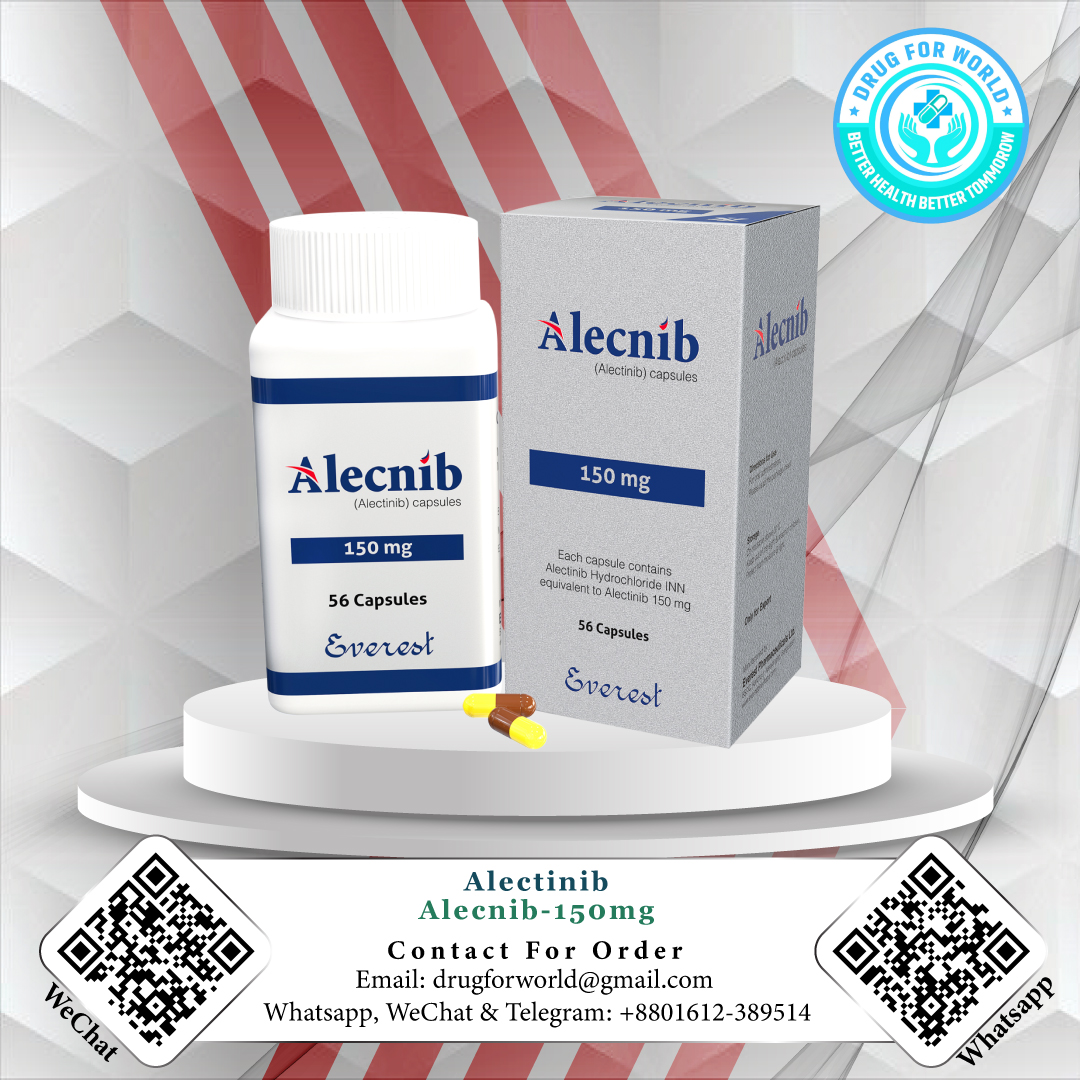
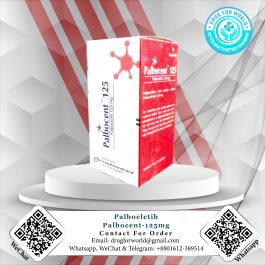
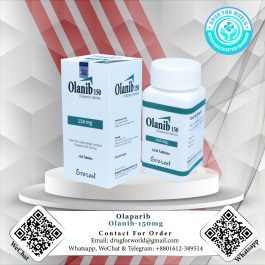
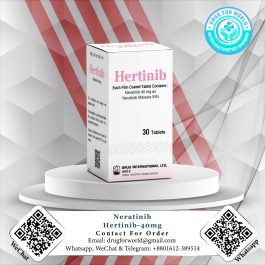
Reviews
There are no reviews yet.